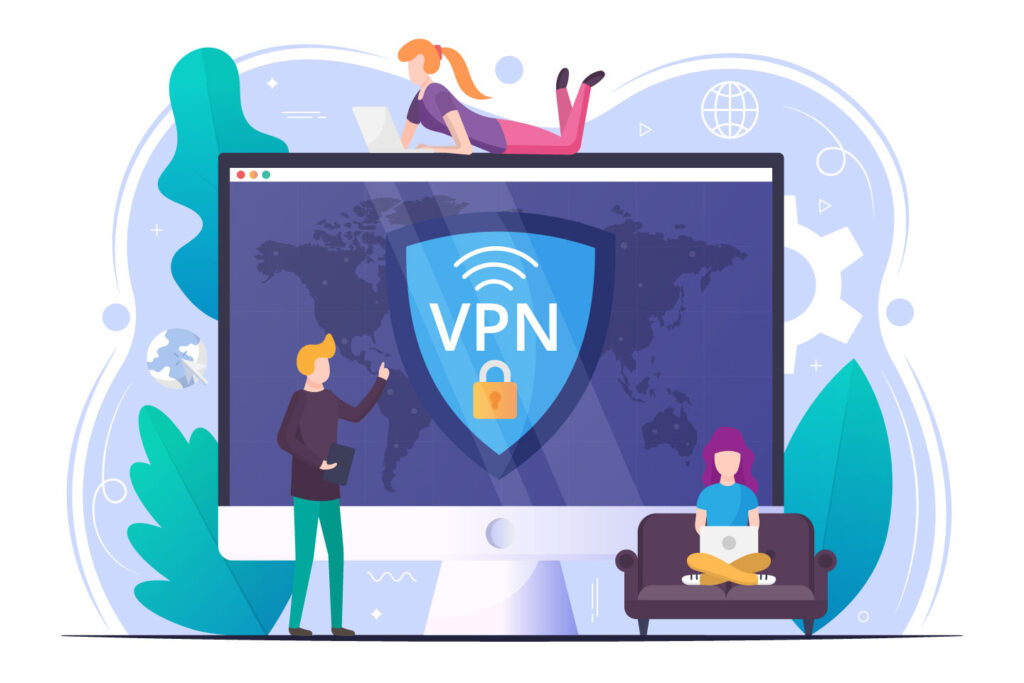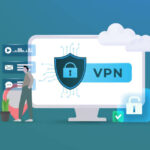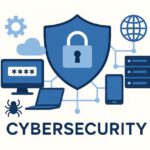Have you ever wondered what would happen if you kept your VPN running 24/7? We’ve been there, asking ourselves the same question. In today’s digital world, where our privacy seems to shrink by the day, using a Virtual Private Network has become increasingly common. But should you use it all the time? What are the real effects on your online experience?
After years of testing and daily VPN usage, we want to share what we’ve learned. This guide will walk you through everything that happens when you keep your VPN active continuously, from the good stuff to the not-so-great aspects. We’ll help you make an informed decision about your own VPN habits.
What Is a VPN and How Does It Work?
Before we dive into constant usage, let’s quickly cover what a VPN actually is. A VPN, or Virtual Private Network, creates a secure tunnel between your device and the internet. It’s like having a private highway for your data that protects it from prying eyes.
When you connect to a VPN, your internet traffic gets routed through a server in a location of your choice. This process hides your real IP address and encrypts your data, making it much harder for anyone to track what you’re doing online. If you want to understand this better, check out our detailed explanation of what a VPN is and how it works.
The magic behind this technology is encryption. Your data gets scrambled into a code that only the VPN server can unscramble. This means even if someone intercepts your connection, they can’t read your information. We’ve found this particularly useful when using public Wi-Fi networks, which we’ll discuss more later.
What Are the Main Benefits of Using a VPN Constantly?
Using a VPN all the time comes with several significant advantages that we’ve experienced firsthand. Let’s explore these benefits to help you understand why many people choose to keep their VPNs active continuously.
Enhanced Privacy Protection
When you use a VPN constantly, you create a persistent shield around your online activities. Your Internet Service Provider (ISP) can’t see what websites you visit or what you download. This is important because ISPs often collect and sell your browsing data to advertisers.
We’ve noticed that this constant protection becomes especially valuable when we’re researching sensitive topics or simply don’t want our online behavior tracked. It’s like having curtains on your digital windows at all times.
Improved Security on All Networks
Whether you’re at home, work, or using public Wi-Fi, a VPN provides consistent security. We’ve tested this extensively, and the peace of mind it offers is remarkable. Public Wi-Fi networks at airports, hotels, and coffee shops are notoriously insecure, making them prime targets for hackers.
When you use a VPN on these networks, your data remains encrypted and protected from potential snoops. Our guide on why you should use a VPN on public Wi-Fi explains this in more detail.
Access to Geo-Restricted Content
One of our favorite benefits of constant VPN usage is the ability to bypass geographical restrictions. Streaming services, websites, and online platforms often limit content based on your location. With a VPN always active, you can switch between different regions to access content that might be unavailable in your country.
This has been particularly useful for our team when traveling abroad, allowing us to access our usual streaming services and websites without interruption.
Protection Against Bandwidth Throttling
Some ISPs intentionally slow down your internet connection when they detect certain activities like streaming or torrenting. This practice is called bandwidth throttling. Since a VPN encrypts your traffic, your ISP can’t tell what you’re doing online, making it much harder for them to throttle your connection based on your activities.
We’ve conducted tests that show streaming quality can actually improve when using a VPN during peak hours, likely because the ISP can’t identify and throttle the traffic.
What Are the Potential Drawbacks of Using a VPN All the Time?
While the benefits are significant, using a VPN constantly does come with some drawbacks that you should consider. We’ve encountered these issues ourselves, and being aware of them can help you make an informed decision.
Reduced Internet Speed
Let’s be honest – using a VPN will likely slow down your internet connection to some degree. This happens because your data has to travel through an additional server and gets encrypted in the process. The extent of this speed reduction depends on several factors:
- The distance to the VPN server
- The quality of the VPN service
- The encryption protocol used
- The original speed of your internet connection
In our experience, premium VPN services typically cause a speed reduction of 10-30%, while free or lower-quality services might slow your connection even more. You can learn more about this in our article on whether VPNs make internet slower.
Compatibility Issues With Some Services
We’ve run into situations where certain websites or services don’t work properly when using a VPN. Some streaming platforms actively block VPN users, and banking apps might flag your account for suspicious activity when they detect a login from an unusual location.
This can be frustrating when you need to access these services quickly. In such cases, you might need to temporarily disable your VPN or use a feature called split tunneling, which allows some apps to bypass the VPN while others remain protected.
Battery Drain on Mobile Devices
If you’re using a VPN on your smartphone or tablet, you’ll probably notice that your battery drains faster. The encryption process requires additional processing power, which consumes more energy. This effect is more noticeable on older devices or those with smaller batteries.
We’ve found that using lighter encryption protocols like WireGuard can help reduce battery usage compared to older protocols like OpenVPN.
Potential for Service Blocking
Some networks and institutions actively block VPN connections. This includes certain corporate networks, schools, and countries with strict internet censorship. If you’re constantly connected to a VPN, you might find yourself unable to access these networks at all.
Our Experience With Constant VPN Usage
After using VPNs continuously for several years, we’ve gathered some interesting insights that might help you decide if this approach is right for you.
Initially, we noticed the speed reduction more prominently, especially when connecting to distant servers. However, as VPN technology has improved and we’ve learned to select optimal servers, this has become less of an issue. We now make it a habit to choose servers that are geographically closer to us unless we need a specific location for accessing content.
One unexpected benefit we’ve discovered is the reduction in targeted advertisements. Since our browsing habits are no longer easily trackable, we’ve seen fewer ads that seem to know exactly what we were just searching for. This has made our online experience noticeably less intrusive.
We’ve also learned to appreciate the convenience of having our VPN set up to connect automatically when our devices start. This ensures we’re always protected without having to remember to turn it on manually. Most good VPN services offer this feature, and we highly recommend enabling it if you decide to use a VPN constantly.
Practical Guide: Setting Up Your VPN for Continuous Use
If you’re considering using a VPN all the time, here’s how we recommend setting it up for the best experience:
Choose the Right VPN Service
Not all VPNs are created equal, especially when it comes to continuous usage. We suggest looking for these features:
- A strict no-logs policy
- High-speed servers in multiple locations
- Support for modern protocols like WireGuard
- Unlimited bandwidth
- Apps for all your devices
- Good customer support
Our comparison of free vs paid VPN services can help you understand the differences and make an informed choice.
Configure Your Settings Properly
Once you’ve chosen a VPN service, proper configuration is key. Here’s what we recommend:
- Enable the kill switch feature, which disconnects your internet if the VPN drops unexpectedly
- Set up automatic connection on device startup
- Configure split tunneling if you need certain apps to bypass the VPN
- Select the fastest protocol available (usually WireGuard)
- Choose servers that are geographically close to you for better speeds
Test Your Connection
After setup, we suggest testing your connection to ensure everything works as expected:
- Check your IP address to confirm it’s masked
- Run a speed test to measure the impact on your connection
- Try accessing geo-restricted content
- Test your favorite websites and apps to ensure they work properly
Checklist for Optimal VPN Usage
To help you get the most out of using a VPN constantly, we’ve created this checklist:
Security Settings
- [ ] Enable the kill switch feature
- [ ] Turn on DNS leak protection
- [ ] Use the strongest available encryption
- [ ] Enable two-factor authentication for your VPN account
Performance Optimization
- [ ] Select servers geographically close to you
- [ ] Use the fastest protocol available
- [ ] Enable split tunneling for apps that don’t work with VPN
- [ ] Update your VPN app regularly
Privacy Protection
- [ ] Verify the provider’s no-logs policy
- [ ] Use anonymous payment methods if possible
- [ ] Clear cookies and cache regularly
- [ ] Consider using a private browser alongside your VPN
Troubleshooting
- [ ] Have alternative servers ready in case one becomes slow
- [ ] Know how to quickly disable your VPN if needed
- [ ] Keep customer support contact information handy
- [ ] Understand how to switch between protocols
Understanding VPN Encryption
One of the most important aspects of VPN technology is encryption. This is what keeps your data safe from prying eyes. VPN encryption works by scrambling your data into a code that can only be deciphered with the right key.
Modern VPNs use various encryption protocols, with AES-256 being the industry standard. This is the same level of encryption used by governments and security agencies worldwide. When you use a VPN with AES-256 encryption, your data is essentially unbreakable by current computing technology.
Different VPN protocols offer different balances between speed and security. WireGuard, for example, is newer and generally faster, while OpenVPN has been around longer and is considered extremely secure. Our guide on VPN encryption for beginners explains this in more detail if you’re interested in learning more.
VPN vs. Proxy: What’s the Difference?
Some people confuse VPNs with proxies, but they serve different purposes. While both can hide your IP address, a proxy only works at the application level, meaning it only routes traffic from a specific app or browser. A VPN, on the other hand, works at the system level, routing all your internet traffic through its encrypted tunnel.
Proxies generally don’t encrypt your data, making them less secure than VPNs. They’re useful for simple tasks like bypassing geo-restrictions, but if you’re looking for comprehensive privacy and security, a VPN is the better choice. Our article comparing VPN and proxy services breaks down these differences in more detail.
VPN Tunnels: How They Secure Your Connection
The concept of a VPN tunnel is central to how VPNs protect your data. Imagine sending a letter through a special armored tube that runs from your house directly to the recipient’s house. This is essentially what a VPN tunnel does for your internet traffic.
When you connect to a VPN, it creates this secure tunnel through which all your data passes. This tunnel protects your information from being intercepted or monitored on its journey. Even if someone could somehow tap into the tunnel, they would only see encrypted data that’s virtually impossible to decipher.
This tunneling technology is what makes VPNs so effective at protecting your privacy, especially on unsecured networks like public Wi-Fi. If you want to understand this concept better, our explanation of VPN tunnels provides more detail.
VPNs and Cybersecurity
Using a VPN is just one part of a comprehensive cybersecurity strategy. While VPNs are excellent at protecting your data in transit and masking your IP address, they don’t protect against all cyber threats. You still need good antivirus software, strong passwords, and safe browsing habits.
Think of a VPN as one tool in your digital security toolbox. It’s an essential tool, especially for privacy protection, but it works best when combined with other security measures. Our guide on cybersecurity basics explains how VPNs fit into a broader security strategy.
Frequently Asked Questions
Is it legal to use a VPN all the time?
Yes, in most countries it’s completely legal to use a VPN all the time. VPNs are legitimate privacy tools used by millions of people worldwide. However, in some countries with strict internet censorship like China, Russia, and Iran, there are restrictions on VPN usage. Always check your local laws if you’re unsure about the legality of VPNs in your region.
Will using a VPN constantly slow down my internet?
Yes, using a VPN will typically slow down your internet connection to some degree. The speed reduction happens because your data has to travel through an additional server and gets encrypted in the process. However, with a quality VPN service, this speed reduction is often minimal and barely noticeable for regular browsing activities. The trade-off in privacy and security is usually worth the slight decrease in speed.
Can I use a VPN for streaming services like Netflix?
Yes, you can use a VPN with streaming services, but it can be hit or miss. Netflix and other streaming platforms actively try to block VPN connections, so you might need to try different servers or use a VPN that specifically offers streaming-optimized servers. Some VPN providers are better than others at bypassing these restrictions, so if streaming is your main priority, choose a VPN that’s known to work well with your favorite services.
Do free VPNs work for constant usage?
While free VPNs might seem tempting, we generally don’t recommend them for constant usage. Most free VPNs have significant limitations like data caps, slower speeds, fewer server options, and weaker security. Some free VPNs even collect and sell your data to third parties, which defeats the purpose of using a VPN for privacy. If you’re serious about protecting your privacy, investing in a paid VPN service is worth it in the long run.
Can using a VPN protect me from hackers?
Yes, using a VPN can significantly protect you from certain types of hacking, especially when using public Wi-Fi networks. The encryption provided by a VPN makes it much harder for hackers to intercept your data or perform man-in-the-middle attacks. However, a VPN doesn’t protect against all types of cyber threats, so it’s important to practice good digital hygiene and use other security measures alongside your VPN.
Will a VPN drain my phone battery faster?
Yes, using a VPN on your phone will typically cause faster battery drain. The encryption process requires additional processing power, which consumes more energy. The impact on battery life varies depending on your phone model, the VPN protocol used, and other factors. Using more efficient protocols like WireGuard can help minimize battery usage compared to older protocols.
Can I use a VPN on all my devices?
Most quality VPN services allow you to use their service on multiple devices simultaneously. The exact number varies by provider, but many support 5-10 connections per subscription. This means you can protect your phone, computer, tablet, and even your router with a single VPN account. Always check the connection limit before subscribing to ensure it meets your needs.
Does a VPN protect me from viruses and malware?
No, a VPN alone doesn’t protect you from viruses and malware. While a VPN encrypts your internet connection and hides your IP address, it doesn’t scan for or remove malicious software. You still need reliable antivirus software to protect your devices from malware. Think of a VPN as protecting your data in transit, while antivirus software protects your device itself.
Can my ISP see what I’m doing when I use a VPN?
When you use a properly configured VPN, your ISP can’t see the specific websites you visit or what you do online. They can only see that you’re connected to a VPN server and the amount of data you’re transferring. This is one of the primary privacy benefits of using a VPN – it prevents your ISP from monitoring and selling your browsing data.
Is it difficult to set up a VPN for constant use?
No, setting up a VPN for constant use is generally straightforward with modern VPN services. Most providers offer user-friendly apps with one-click connections and automatic startup options. Once you’ve installed the app and logged in, you can configure it to connect automatically whenever your device starts, ensuring you’re always protected without having to remember to turn it on manually.
Conclusion
Using a VPN all the time offers significant privacy and security benefits, but it comes with some trade-offs. Based on our experience, the advantages of constant VPN usage often outweigh the drawbacks, especially if you choose a quality service and configure it properly.
The key is finding the right balance for your specific needs. If privacy and security are your top priorities, keeping your VPN active continuously makes sense. If you’re more concerned about maximum speed for certain activities, you might prefer to use your VPN selectively.
Whatever approach you choose, we hope this guide has helped you understand what happens when you use a VPN all the time. The digital landscape is constantly evolving, and tools like VPNs become increasingly important for maintaining our privacy and security online.
Remember, a VPN is just one part of a comprehensive approach to digital security. Stay informed about the latest threats and best practices, and you’ll be well-equipped to navigate the online world safely and privately.


